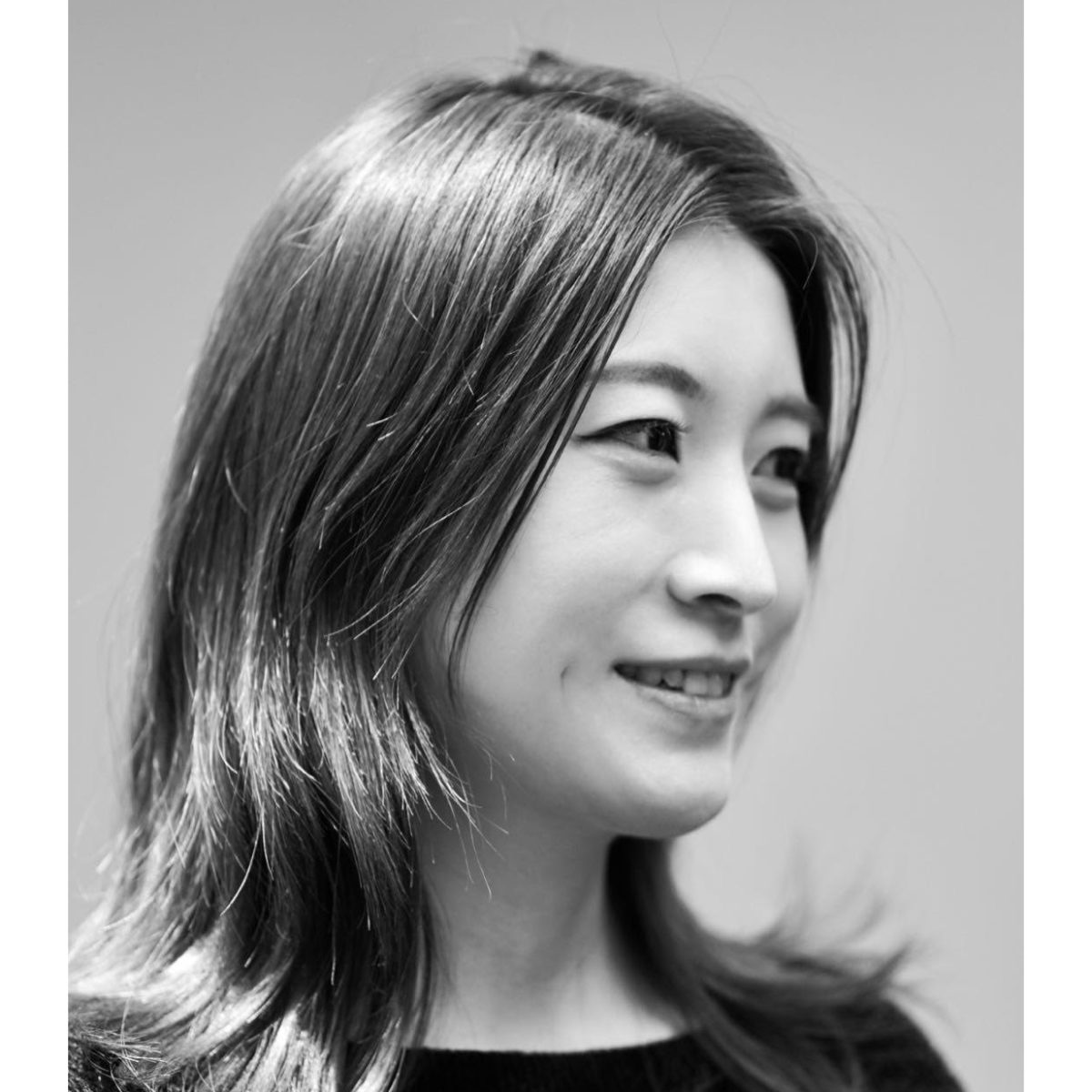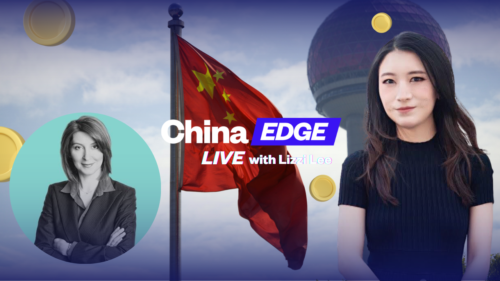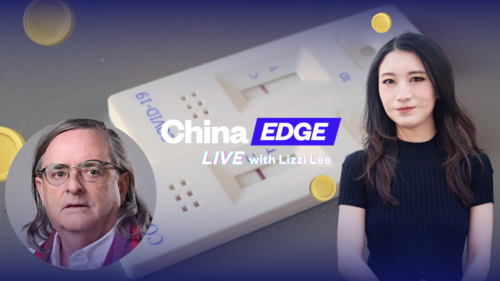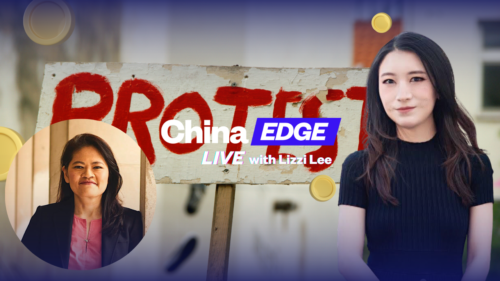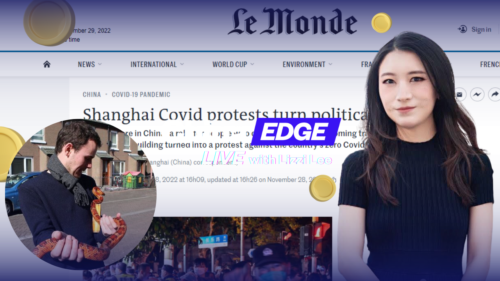Xi’s overreach | Live with Lizzi Lee
Susan Shirk, research professor and chair of the 21st Century China Center of UCSD, details China's rise from a fragile superpower to global heavyweight, posing a challenge to the U.S. economically, technologically, and militarily.

In this episode of Live with Lizzi Lee:
Susan Shirk, research professor and chair of the 21st Century China Center of UCSD and former deputy assistant Secretary of State in the Bureau of East Asia Pacific Affairs in the Clinton administration, discusses her new book, Overreach: How China Derailed Its Peaceful Rise.
Shirk details China’s rise from a fragile superpower to global heavyweight, and how Xí Jìnpíng 习近平 might resort to provoking foreign conflicts to divert domestic frustration — but also that U.S. policymakers shouldn’t give up on diplomacy and should engage and negotiate the key disputes with China.
Below is a transcript of the video:
Lizzi: Joining me today is Professor Susan Shirk, research professor and chair of the 21st Century China Center of UCSD. Previously, professor Shirk served as deputy assistant Secretary of State in the Bureau of East Asia Pacific Affairs in the Clinton administration.
Shirk: It’s my pleasure.
Lizzi: So, Professor Shirk, we watched Xí Jìnpíng’s 习近平 open remarks at the 20th Party Congress. What do you think are the main takeaways?
Shirk: Well, there aren’t a lot of surprises, unfortunately. What we see is more continuity with the first decade of his rule. I know that many of us, and especially the business community, were looking to see whether he completely abandoned development as the main priority of the Party. He didn’t do that. He checked the box to express the importance of economic development as the key goal of the Party.
And yet it’s clear that security dominated the speech. And security considerations do dominate the policy of his regime.
Lizzi: In your new book, Overreach: How China Derailed Its Peaceful Rise you argue that China since 2008, but especially during Xi Jinping’s decade, has overreached — per the title of the book. What are the consequences of Xi Jinping’s over-concentration of power?
Shirk: Well, overreach, of course, means to take things too far, to do things in an exaggerated way that harms yourself. So, it’s actions that backfire in harming China. And I do think that many of Xi Jinping’s policies and actions are not good for China. That’s one of the reasons that I dedicated the book to Chinese colleagues and people I’ve talked with who’ve helped me understand China.
And I wrote the book really thinking about a Chinese audience as well as a Western audience. Xi Jinping’s overreaching has harmed China in lots of ways. There is a snowballing international backlash because China looks like more of a threat than it did before. And this is not just the result of increased capabilities, even in the tech sector or the military sector. It’s China’s own policies and actions.
In my view, the building up of artificial islands in the South China Sea, the punishment of Australia for calling for an international investigation on COVID, the sanctions against South Korea…
In the end, these actions really snap back against China’s own national interests, and you can make similar arguments about many of Xi Jinping’s domestic politics as well.
Lizzi: But are there signs of dissent or pushback within the top echelon of the Party elite?
Shirk: Well, that is a really difficult question, especially since we have been unable to go to China for more than two years. And the people I talk to, I’m not able to talk frankly with them.
So all I really can say is that putting myself in the shoes of other Chinese leaders, I believe that they must have considerable frustration with Xi Jinping, because of the lack of power-sharing, and the pressure that he’s putting them under. And also the fact that his actual policy choices, which he’s made in a rather arbitrary fashion…
I have one chapter in which I list a few of these “bolts from the blue,” in which suddenly there is a new Xi policy, such as the 2021 crackdown on the private tech sector right before Ant Financial is about to list. And, and, of course, the destruction of the whole after-school tutoring industry.
So, these are actions that suddenly come out and are a major shock to the system and of course have been quite harmful to China, because the private sector is so important for employment as well as for innovation.
These “bolts from the blue” are very much the result of overconcentration of power, and other leaders are not able to check, constrain or influence Xi Jinping’s decisions very well. And these decisions seem to come from him.
And then everyone is so worried about their own careers because they’re all in competition with one another, certainly to avoid being targeted by the anti-corruption campaign, which continues (we’re in the third phase of that now), as well as seeking promotion for themselves.
That’s why they feel that they can’t really speak honestly to him about the downsides of his policies and that they must gush expressions of loyalty and then over-comply with his policy choices, even if they know that they’re bad ones.
My hunch is… I don’t really have hard evidence of this. I don’t think any of us do. But my hunch is that other people in the Party leadership are very frustrated with Xi Jinping’s leadership, and they would like to see some changes.
Lizzi: You also argue that Xi Jinping might resort to provoking foreign conflicts, to divert domestic frustration. So how a scenario like that will likely play out?
Shirk: Well, let me first say that we know as social scientists that diversionary war is a reality. Erin Carter, an international relations comparative politics expert on China at the University of Southern California, has done one study in which she found that 40% of Chinese conflict behavior is the result of differences within the elite. And she categorizes it as diversionary.
My book does not make a point of arguing that we should expect a diversionary war from Xi Jinping. But I do see that the costs of overreach are piling up on China.
If the Party can’t deliver the goods economically to the public, can’t satisfy the dissatisfactions of the elite over the lack of power-sharing and the quality of Xi’s decisions, then what’s left? I mean, what’s left is nationalism and distraction.
And the most common form of distraction for a major power like China is to blame a foreign threat and to maybe provoke a crisis that will cause people to rally around his leadership and the Party.
Lizzi: Importantly, your book also warned that the West should be cautious of the tendency of overreacting to Xi Jinping’s overreaching. I wonder if you can elaborate a little more on that point.
Shirk: Several years ago, I gave a talk on overreach and overreaction. And quite a few people have asked me, well, why is this book only about overreach and not about overreaction, too.
Although I do devote the last chapter to the question of U.S. policy and make recommendations not to overreach. But this book is aimed at figuring out the puzzle of why China, after decades of very effective and restrained foreign policy and diplomacy, made this shift in the mid-2000s, and why it continues now.
I’m a comparative politics specialist. And, you know, I’m really focusing more on the connections between domestic politics and international behavior for China. Not so much on the interaction. But I recognize, of course, that outcomes are very much the result of the strategic interaction between the U.S. and China.
I feel that for the past six years we have been overreacting by exaggerating the threat from China, even though I am very concerned about the dynamics inside China, the overreaching.
But I think that we shouldn’t give up on diplomacy and that we really haven’t engaged in any effective effort to negotiate the key disputes we have with China for the past six years, and that we should be a lot smarter about how we use both carrots and sticks, meaning reassurance, as well as punishments like sanctions to try to induce moderation in Chinese policies, mainly its foreign policy behavior. I just don’t feel that we’ve really tried hard enough.
Now, the problem is that right now, the public in China, as well as Xi Jinping and the elite, have concluded that it really doesn’t matter what they do, that our entity lists and our policy to sanction China is simply an effort to trip it up, slow it down, contain it, and that it is the result of our own misperceptions of China. We need to find a way to communicate better and to make clear that it really is about China’s own policies and behavior. And were they to moderate them, the door remains open to rebuilding a constructive relationship with China.
